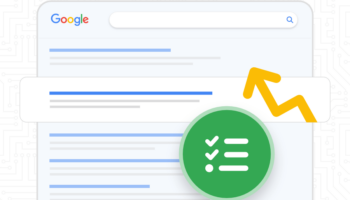Online security has been a growing sector for years and from our perspective, it is something that the newest generation of web users will probably take for granted.
The past 10 years have seen a huge improvement in online communications, whether it’s social media or the devices we use to access those portals. Every type of business process from payroll, to management, to applying for that job now happens online, and gaining access to your personal information is what cyber attackers are now starting to focus on.
Have you seen an increase in spam emails? Do you now receive increased spam phone calls and texts on your mobile device? I have and I know a lot of others who have been dealing with similar problems.
On top of the personal nature of some of these attacks, I also have worked with a few businesses who had their credit card data stolen and used by a criminal.
There are proactive things you can do to help protect yourself online from cyber criminals and here are a few specific items:
Update your Password Frequently
This is pretty common sense, but you’d be surprised at how many folks either use the same password for years or use the same password on multiple accounts.
Yes, it’s easier to simply memorize one password, but you have to think about if a malicious user got a hold of your PW? They would then have access to various personal accounts and would most likely try to use the same email/PW combination on sites and services you visit.
Also, be sure to have a Password that mixes in some numbers, symbols, etc., as the more random your PW is the more secure it will be.
Never Send Personal Information
The biggest rule on the internet is to never send any information about your address, social security, credit card accounts, or usernames/passwords.
Unless the website you are on is totally secure (HTTPS), you should never submit any sort of payment, bank information, or credit card information to online portals.
If you need to get that information to someone, we recommend calling them directly and never putting those details into a format that can be intercepted or stolen (emails, texts, chats, etc.)
Take a Minute to Process Email Requests
I’ve personally seen a lot of phishing emails this year and I spoke with a few others who have had the same issue. Part of the problem with email phishing scams is they appear to come from a coworker or friend and they usually look like pretty legit emails.
One of the biggest indicators is processing what that person is asking you in that email. Is it something that friend or coworker has asked for in the past? Does it fit your relationship or job description? Are they using language that you typically don’t see them use? Is this something they would ever ask you for help on or money for?
Scammers are smart and are starting to use names and emails of people in the accounts they gain access for to build a user list of “trusted” friends and people they know to get people to let their guard down.
Any of those are potential red flags for a phishing scam. The other easy to identify clue would be to look at the return email address for that user. In the phishing emails I’ve experienced, the person’s name is displayed as someone you know or work with, but the email address itself isn’t a work or personal email you’ve contacted them at before.
Think Before Posting on Social Media
A lot of cyber attackers now use social media to look for potential victims since there are ways to learn a lot about a person online if they give you the opportunity.
You never want to display your physical address or phone number and typically not your personal email address if you want to prevent any unwanted communication.
Facebook got themselves into a lot of trouble by selling personal information to users and that is a perfect example of a social media outlet where people post personal information: places they’ve visited, vacations they took or want to take, invites to house parties, etc…
Preventing the increasing number of attacks starts with an understanding of how you use the web and how others look to take advantage of you and your personal information. Don’t hesitate to chat with coworkers and friends about ongoing issues you’ve had with cyber attacks to help educate others and help prevent these issues.
We know for sure that criminals will continue to exploit any areas of the web for their gain and being proactive about your online presence will help you from becoming a victim.





